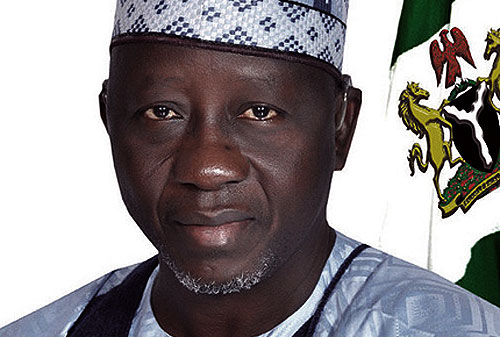By Becky John
Gov. Akinwunmi Ambode of Lagos State and his Nasarawa counterpart, Alhaji Umaru Al-makura, on Monday urged the National Assembly (NASS) to speedily work to pass the Disability Bill. The governors made the call at the first International Conference on Disabilities with theme `Creating an Inclusive Society for all’, in Lagos.
According to them, the society has come to the realization that there is ability in disability.Ambode, represented by Mr. Tunji Bello, Secretary to the State Government (SSG), noted that the potentials of People Living with Disabilities (PLWD) were being recognized.
“Over the years, issues concerning people with disabilities have continued to receive public attention, especially with respect to giving due recognition to their rights, stopping discrimination and generally promoting the principle of inclusion.
“Today, the society has come to the realization they have abilities and that PLWDs are part and parcel of the society.
“So, they must be provided with the enabling environment to realize their full potential in all spheres of human endeavor; there is need for the NASS to pass the pending disability bill.’’
He said that Lagos State had demonstrated its commitment to creating such enabling environment by pioneering the enactment of the Special Peoples Law of 2011.
“We have also established the Lagos State Office for Disability Affairs (LASODA) which is charged with the responsibility of implementing the law.
“We have made significant progress in the implementation of the provision of this law and also given due publicity in the media to sensitize the general populace, institutions, service providers, and corporate organizations of their responsibilities to PLWDs.
“Part of the implementation of the law is the continuous registration of people with disabilities and issuance of certificates/blue badges otherwise known as disabled parking permit.
“Others include reservation of one out of 20 parking spaces for PLWD, construction of ramps and hand rails for access to public buildings among others.’’
Ambode observed that one of the main challenges facing PLWDs in urban settings was the lack of facilities in the public transport system, saying that disability friendly buses would soon be on Lagos roads.
He appealed to members of the public, government and corporate organizations to comply with the provisions of the Special Peoples Law, especially by making every public building, place and other structures accessible and usable by PLWD by 2016. Al-makura said, “Disability has always been looked at from a charitable perspective in this part of the world.
“I want to call on the National Assembly to speedily work to pass the disability bill, of which I am certain that President Muhammadu Buhari will have no hesitation in assenting to it.
“They should also work on domesticating the United Nations Convention on the Rights of Persons With Disabilities which Nigeria ratified in September 2010; which has enabled us have a Nigerian on the 18-member Committee of Experts.
“Inclusive Growth advances equitable opportunities for economic advancement by every section of the society’’
According to Al-Makura , inspite of all efforts by concerned groups including the Joint National Association of Persons with Disabilities (JONAPWD), of which he is a member, disability continues to be on the receiving end.
He said, “The disability bill is yet to be signed into law, PLWDs still remain marginalized , discriminated against and we are yet to create the fully inclusive society that we wish to enjoy.
“However, we can pat ourselves at the back on the realization that PLWDs cannot be taken for granted, as any able person is a potential disabled person.’’ Al-makura said that an inclusive society for all will include embracing some fundamental principles and policies. He said that they include making public policies such as the provision of free education, tax incentives and social security for PLWDs.
“We must also ensure full participation of PLWDs in the activation of public policies, integrating sign languages and symbols in communication materials, television broadcast and shopping malls.
“Government should also provide aid materials to students such as wheelchairs, braille, white canes and hearing aids.
“We should also make policies of state to engage the disabled in the communities, eliminate disability line through vigorous government and civic leadership, as well create a comprehensive human capital agenda for PLWDs,’’ Al-Makura advised.


